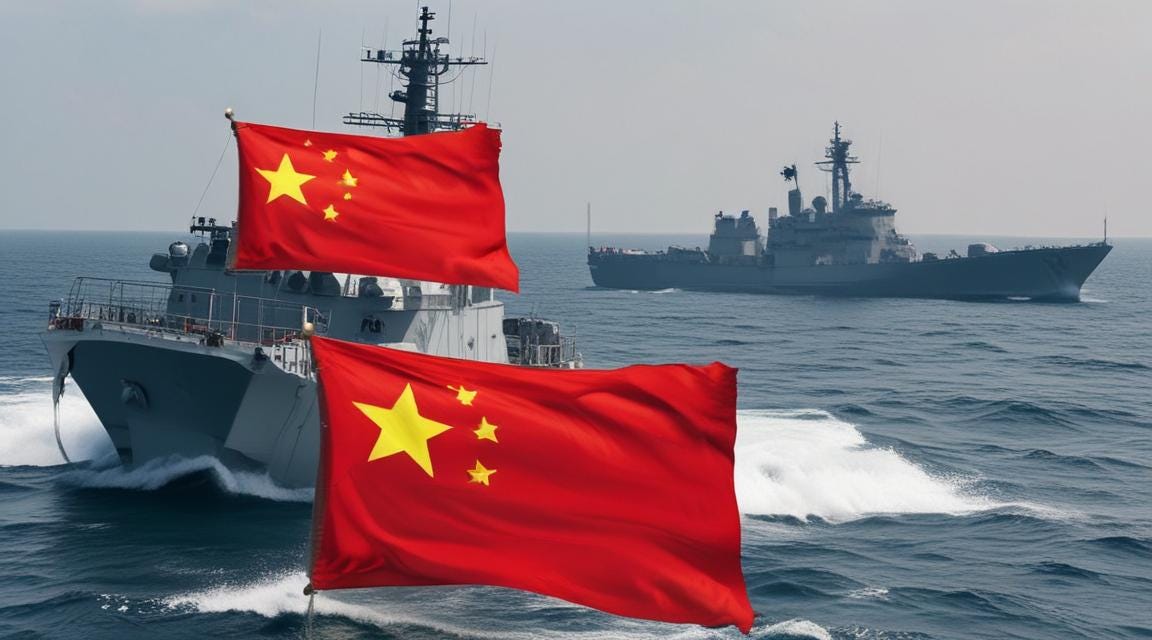
Navigating the Stormy Waters: The Urgent Need to Check China's Aggressive Stance in the South China Sea
As tensions escalate in the South China Sea, the international community must act to uphold international law and support regional stability
In recent months, tensions between Manila and Beijing over territorial claims in the South China Sea have escalated dramatically. This dispute, centered around China's assertive claims and Manila's sovereign rights, underscores the urgent need for the international community to address and contain Beijing's aggressive behavior in the region.
The roots of this conflict trace back to a landmark ruling in 2016 by an arbitral tribunal in The Hague, which unequivocally dismissed Beijing's expansive claims under its so-called nine-dash line. The tribunal's decision recognized the sovereign rights of the Philippines over its exclusive economic zone (EEZ) in the South China Sea, effectively nullifying China's assertions over the disputed maritime features. Despite the clarity of this ruling, China has obstinately refused to accept the decision, continuing to assert its claims through various aggressive actions.
Beijing's rejection of the 2016 ruling and its subsequent militarization of the South China Sea pose significant challenges to regional stability and international law. By constructing artificial islands and deploying military assets, China has not only escalated tensions but also disrupted the balance of power in the Asia-Pacific region. These actions undermine the rules-based international order and threaten the sovereignty of neighboring states, particularly those with legitimate claims upheld by international legal standards.
The South China Sea is a critical maritime corridor, through which a substantial portion of global trade flows. It is also rich in natural resources, including fisheries and potential underwater oil and gas reserves. Control over this area provides significant economic and strategic advantages, making the region a focal point of geopolitical interest. For the Philippines, Vietnam, Malaysia, Brunei, and other Southeast Asian nations, China's aggressive posturing represents a direct threat to their economic interests and national security.
China's actions in the South China Sea are not merely regional concerns; they have global implications. The international community, particularly major powers such as the United States, Japan, Australia, and the European Union, must recognize the broader stakes involved. Upholding international law and ensuring freedom of navigation are fundamental principles that benefit all nations, not just those directly involved in the dispute.
The United States has taken a firm stance against China's claims, conducting freedom of navigation operations (FONOPs) and strengthening security partnerships with Southeast Asian nations. These efforts are crucial in demonstrating a collective commitment to maintaining the rules-based order. However, more comprehensive and coordinated actions are needed to effectively counter Beijing's ambitions.
Diplomatic engagement and economic measures should complement military deterrence. The Association of Southeast Asian Nations (ASEAN) must also play a more assertive role in addressing the issue. ASEAN's unity and cohesion are vital in presenting a collective front against Chinese aggression. Additionally, enhancing cooperation with like-minded partners in the Indo-Pacific, such as India and Australia, can amplify regional efforts to maintain stability and uphold international norms.
China's aggressive actions in the South China Sea are a litmus test for the international community's resolve to uphold international law and protect the sovereignty of smaller nations. Allowing Beijing to flout the tribunal's ruling and assert control over contested waters would set a dangerous precedent, emboldening other revisionist powers and undermining the principles that govern global order.
To navigate these stormy waters, it is imperative that the international community stands firm in defending the principles of sovereignty, territorial integrity, and the rule of law. Supporting Manila and other Southeast Asian nations in their rightful claims is not just a regional responsibility but a global imperative. By curbing China's aggressive stance, we can ensure that the South China Sea remains a sea of peace and prosperity, rather than a theater of conflict and domination.
The escalating tensions in the South China Sea highlights the urgent need for collective action to counter China's aggressive behavior. Upholding the 2016 tribunal ruling and supporting regional stability are critical to maintaining the rules-based international order. The international community must act decisively to check Beijing's ambitions and ensure that the sovereignty of smaller nations is respected and protected. Only through a united and resolute approach can we navigate the challenges posed by China's assertiveness and secure a peaceful and prosperous future for the region.






